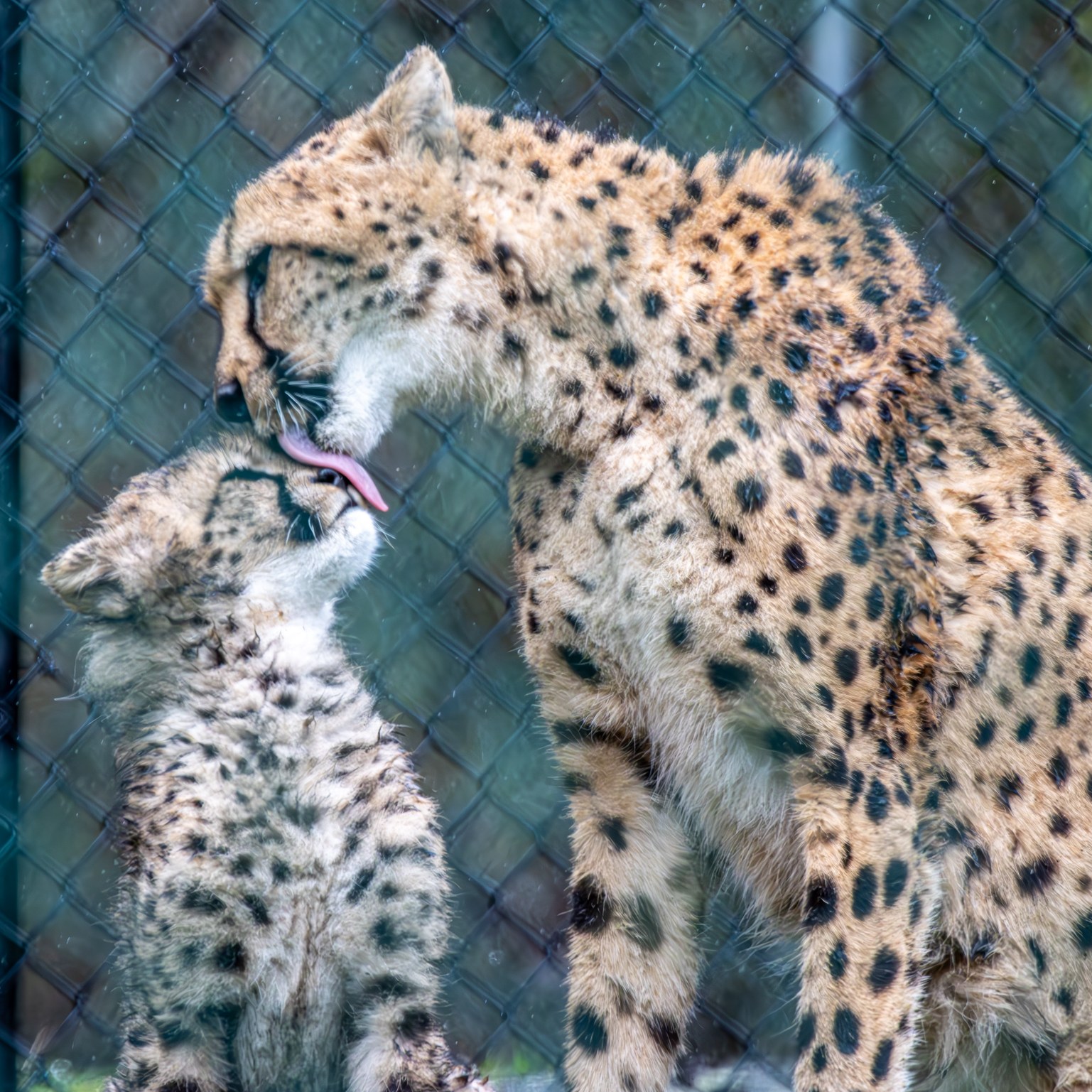- Motherhood practices of wild cheetahs and their significance in cub survival
- Detailed conservation efforts to protect cheetah populations worldwide
- The role of natural instincts in cheetah parenting behaviors
- Insights into how cheetah mothers teach essential survival skills to their offspring
- The challenges faced by cheetah mothers in the wild and at wildlife reserves
In the fascinating tapestry of the African savannah, wild cheetahs exemplify both elegance and resilience. Known as the fastest land animals, their survival does not merely hinge on physical prowess. Motherhood plays a pivotal role in ensuring the continuity of their lineage. Cheetah mothers are ardently devoted, dedicating their time and energy to raising cubs who can proficiently navigate the challenges that lie ahead.
Cheetah mothers engage in a ritualistic practice that is both instinctive and essential for their cubs: grooming. A loving bath is more than an act of hygiene; it strengthens the bond between mother and cub. Such practices facilitate cubs’ recognition of maternal scent, a critical component in the defense mechanism against predators. This early bonding moment lays the groundwork for social learning and survival strategies that will dictate the cubs’ success as autonomous adults.
The wilderness is daunting, constantly testing the adaptability of its inhabitants. For cheetahs, the conservation efforts aimed at their protection are as important as the survival strategies they have honed over millennia. Numerous organizations work tirelessly to mitigate the risks facing these remarkable cats. Wildlife reserves offer a sanctuary, where conservationists employ tracking collars and closely monitor health and population dynamics. This blend of human intervention and natural cheetah behavior aims to preserve the species against the perils of habitat loss, human-wildlife conflict, and dwindling prey populations.
Cheetah conservation is multifaceted, involving community education, habitat restoration, and innovative breeding programs. But the crux of success rests on understanding the intrinsic behavioral patterns of these animals. Wildlife Safari’s initiatives, for instance, adopt a holistic approach, combining scientific research with practical conservation strategies. The reserve serves as a haven for cheetahs where they can flourish under the guidance of knowledgeable professionals. Visitors get an inside look at the management practices that promote the health and growth of cheetah populations.
The natural instincts of cheetah mothers are a testament to their evolutionary success. From a very young age, cubs learn to mimic the stealth and speed of their mother. These skills are paramount, given that every hunt is critical. Lessons begin when cubs are merely a few weeks old, starting with mock hunts within eyesight of the den. Gradually, cheetah mothers will allow their offspring to observe real hunts, providing them a first-hand tutorial on tracking and capturing prey.
Beyond teaching hunting techniques, cheetah mothers also have the critical task of teaching survival behavior. The ability to evade the gaze of predators such as lions and hyenas is crucial. Cheetah mothers guide their cubs in stealth and camouflage, utilizing natural terrains to their advantage. These lessons dictate not only the immediate safety of the young cheetahs but also their long-term survival as they consolidate these skills.
However, the challenges faced by cheetah mothers are immense. Wild environments contain myriad threats, with predation and competition for resources standing at the forefront. In wildlife reserves, despite the controlled environment, challenges remain. Providing adequate space for the cubs to develop their natural behaviors within the constraints of a safari park requires careful planning and expertise.
While the role of cheetah mothers is deeply ingrained in their natural instincts, human-driven conservation plays a significant supporting role. At Wildlife Safari, visitors can witness these majestic animals in their element. Observing a cheetah mother and her cubs offers a glimpse into a delicate balance of survival and nurturing that is fundamental to the success of the species. Engaging with these magnificent creatures instills a sense of responsibility and urgency to uphold wildlife conservation as a shared ethical and environmental duty.
In closing, understanding motherhood in cheetahs is crucial for conservationists aiming to reverse the decline in their populations. Ensuring these iconic animals continue to grace our planet requires the concerted efforts of dedicated individuals and communities globally. Cheetah mothers, with their unwavering dedication, inspire both awe and commitment in the quest to safeguard our shared natural heritage. Through conscious conservation efforts, the serene wildness of the cheetah and its mastery of speed and skill can be preserved for generations to come.
*****
Source Description
🐆💕 Motherhood in the wild! One of our incredible cheetah moms is giving her cubs a loving bath—an essential part of bonding and keeping them clean. Cheetahs are not only the fastest land animals but also some of the most devoted mothers, carefully raising their cubs and teaching them the skills they’ll need to thrive.
Stop by Wildlife Safari to learn more about our cheetah conservation efforts and see these beautiful cats in action! 🐾


